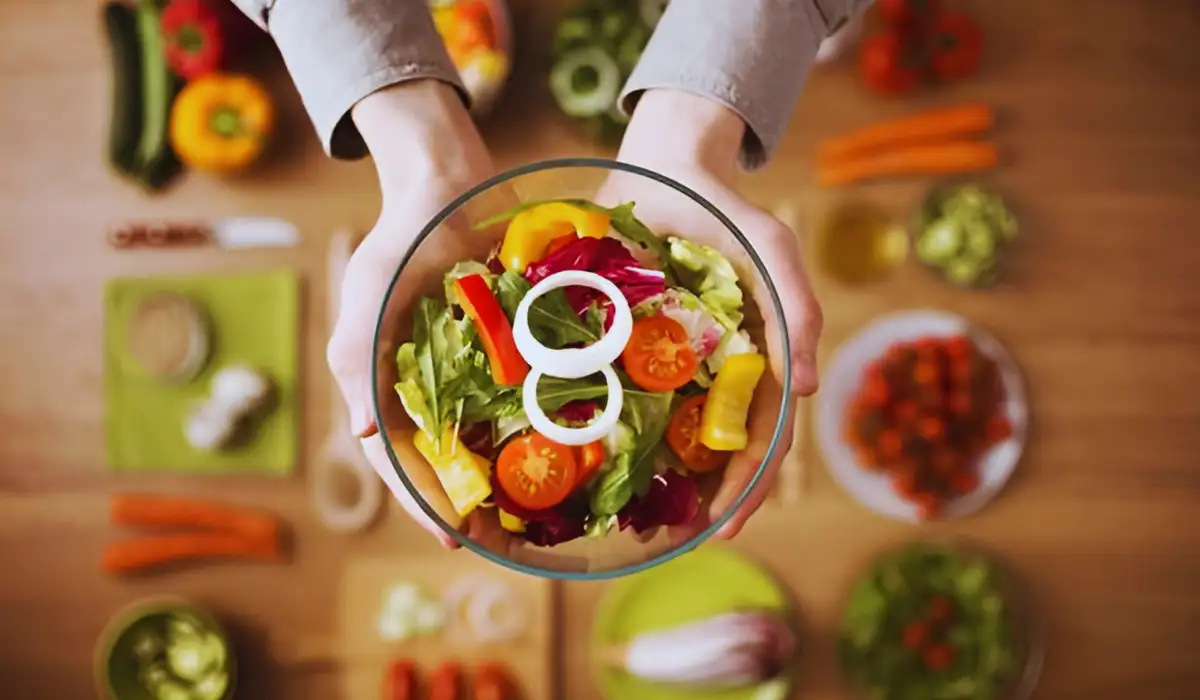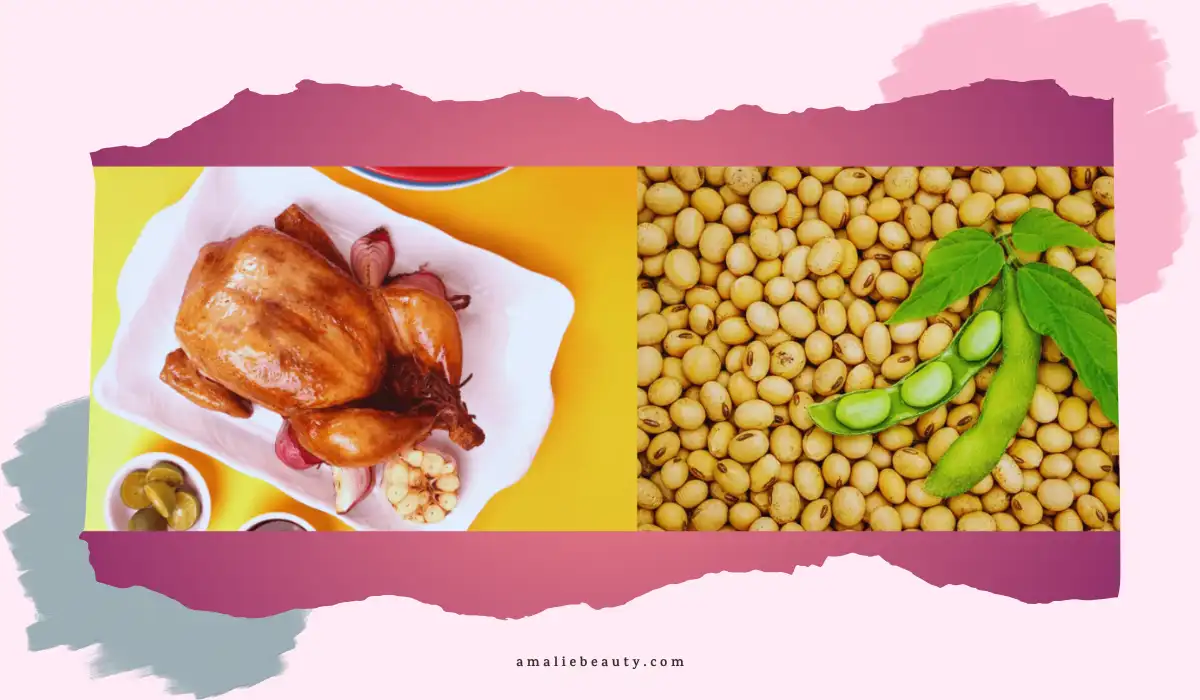Soybeans or chicken: which is better has been a topic of debate, especially for women over 40 looking to promote healthy aging through diet. As we age, getting adequate high-quality protein is essential to maintain muscle, bone health, and overall well-being.
But should that protein come primarily from plant or animal sources? A new study attempts to provide clarity by comparing the health effects of soy versus chicken protein in postmenopausal women over a nearly two-decade period.
Soybeans or chicken: which is better for healthy aging?

What is healthy aging? Healthy aging encompasses many factors, from avoiding disease to maintaining an active lifestyle both physically and mentally. Key contributors are proper nutrition and regular exercise.
As women pass 40, however, their protein needs rise. Some research suggests around 20-30% of their daily calories should come from high-quality protein sources to preserve lean muscle mass. The question is, which types of protein promote optimal health in midlife and beyond?
the protein in soy
Soybeans contain all nine essential amino acids required to form a complete protein. Soy protein offers similar protein quality to animal sources but provides added benefits like fiber, vitamins, minerals, and phytonutrients like isoflavones.
Isoflavones act as antioxidants and mimic estrogen in the body, helping ease menopausal symptoms. This estrogen-like effect, however, has raised questions over whether soy protein is safe long term.
The protein in chicken
Chicken and other poultry provide high-quality protein without concerns over hormonal effects. Chicken supplies all essential amino acids for building and repairing muscle as efficiently as red meat or fish.
As a leaner protein, it contains less saturated fat per serving compared to red meat. From a heart health perspective, skinless poultry like chicken breast makes an excellent high-protein choice.
Why does plant protein work?
Plant proteins like soy offer comparable protein with added benefits not found in animal sources. The isoflavones, fiber, vitamins, minerals, and other phytonutrients in soybeans and soy protein provide antioxidant, anti-inflammatory and antimicrobial effects. This creates a better environment for healthy aging.
The estrogen-like effects also help counteract declining hormone levels for midlife women. While more research is still needed, population studies associate soy consumption with lower risks of hot flashes, heart disease, breast cancer, and osteoporosis.
Can this study be trusted?
A 2022 study followed over 160,000 postmenopausal women for up to 16 years. One group substituted plant protein like soy for refined grains while the other emphasized poultry and fish over red meat. In the end, both groups saw similar reductions in mortality and cardiovascular disease.
This suggests soy protein provides equivalent heart health benefits to chicken. Additionally, as an observational study, it shows associations but cannot prove definitive cause and effect.
More clinical trials are needed, but results add to growing evidence that soy protein boosts heart and overall health, especially for midlife women.
Why do plant proteins work for women, especially aging women?
This large study indicates swapping soy protein for refined carbs offers comparable health perks to emphasizing chicken and fish over red meat – mainly better heart health and longevity. Given the bonuses like isoflavones that come with soy, results give the edge to plant protein for mature women.
Soy likely activates longevity genes and provides anti-inflammatory protection beyond basic protein needs to promote graceful aging. Perimenopausal and postmenopausal women often shy away from soy for fear of hormone-like effects.
Yet most research to date shows soy boosts female health more than harms if consumed in normal dietary amounts.
Can this particular study on the best protein be trusted fully?
As with any single study, some limitations exist. Participants self-reported their protein intake over many years, allowing room for error. The study design shows strong associations between higher plant protein consumption and lower mortality but cannot conclusively prove soy protein extends lifespan.
Additional clinical trials are required to establish direct cause and effect. However, Coupled with previous population research on plant protein and aging, the well-structured approach and large sample size do provide credible evidence that soy protein powers healthy longevity for midlife women as well as better than animal sources like chicken.
Conclusion
Research comparing soy versus animal protein continues to pile up evidence that soy provides equivalent if not better health outcomes for most adults. This includes lower risks for common age-related diseases and improved longevity.
Specifically for postmenopausal women over 40, swapping soy protein in place of refined carbs looks to offer heart health and anti-aging effects on par with emphasizing fish and poultry over red meat.
More research is still warranted especially clinical trials on soy protein and aging. However, current population data indicates plant proteins like soy support healthy longevity for midlife women better than animal sources.
When it comes to the debate between soy versus chicken for optimal aging, soybeans may provide more anti-aging mileage. So vegetarian or not, women entering their 40s and beyond should feel confident that moderate soy protein consumption will likely keep them vibrantly healthy now and for years to come.
The key questions remain – how much soy protein is ideal and what is the best way to integrate it into your diet after 40?
References
- Laudadio V., Tufarelli V. Growth performance and carcass and meat quality of broiler chickens fed diets containing micronized-dehulled peas (Pisum sativum cv. spirale) as a substitute of soybean meal. Poult. Sci. 2010;89:1537–1543. doi: 10.3382/ps.2010-00655.
https://pubmed.ncbi.nlm.nih.gov/20548084/ - Nolte T., Jansen S., Weigend S., Moerlein D., Halle I., Link W., Hummel J., Simianer H., Sharifi A.R. Growth performance of local chicken breeds, a high-performance genotype and their crosses fed with regional faba beans to replace soy. Animals. 2020;10:702. doi: 10.3390/ani10040702.
https://www.ncbi.nlm.nih.gov/pmc/articles/PMC7222797/

